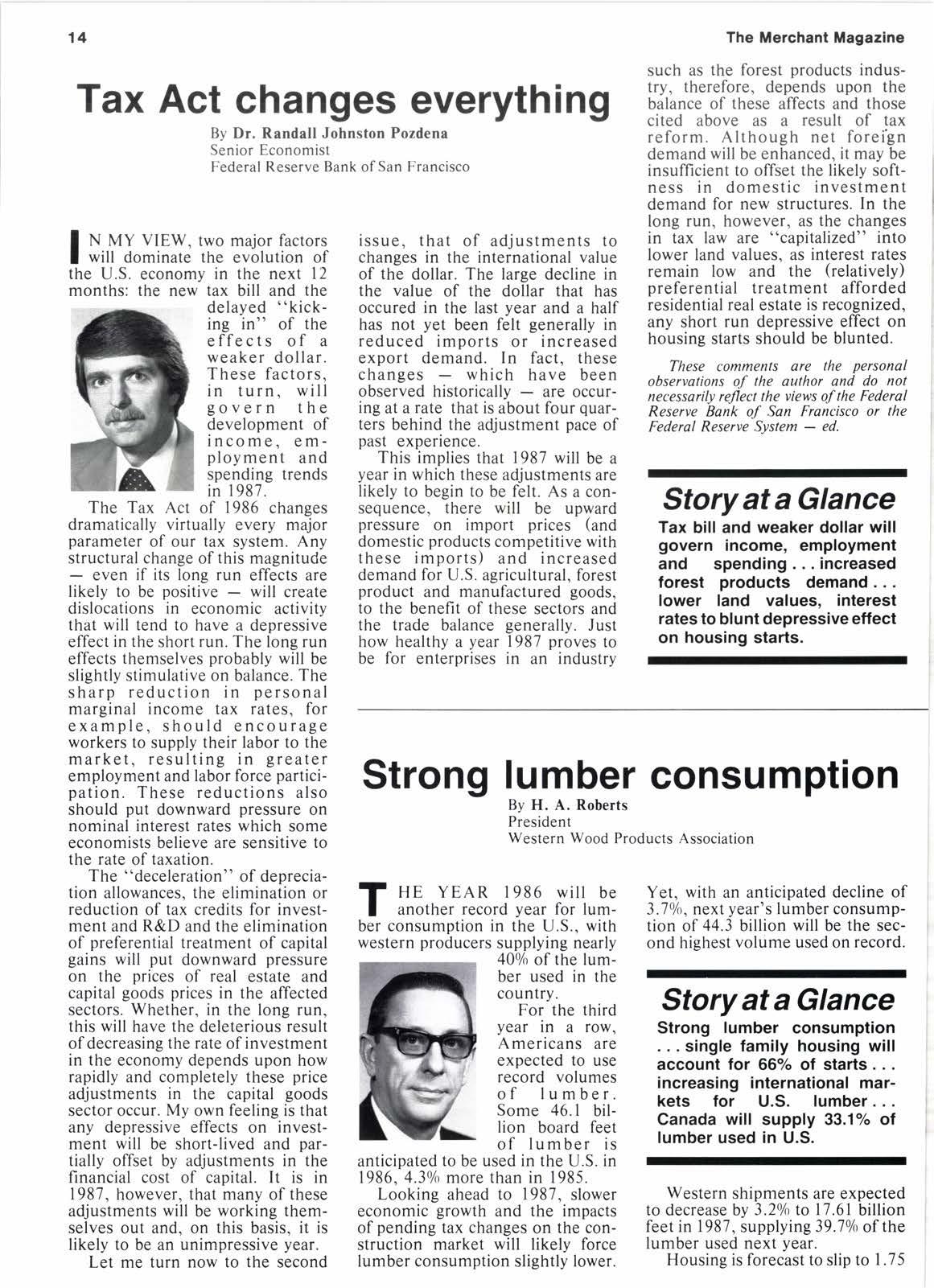
2 minute read
Tax Act changes everything
By Dr. Randall Johnston Pozdena Senior Economist Federal Reserve Bank ofSan Francisco
I N tvtv vlEw, two major facrors I will dominate the evolution of the U.S. economy in the next 12 months: the new tax bill and the delayed "kicking in" of the effects of a weaker dollar. These factors,inturn, will govern the development of lncome, effiployment and spending trends in 1987.
The Tax Act of 1986 changes dramatically virtually every major parameter of our tax system. Any structural change of this magnitudeeven if its long run effects are likely to be positivewill create dislocations in economic activity that will tend to have a depressive effect in the short run. The long run effects themselves probably will be slightly stimulative on balance. The sharp reduction in personal marginal income tax rates, for example, should encourage workers to supply their labor to the market, resulting in greater employment and labor force participation. These reductions also should put downward pressure on nominal interest rates which some economists believe are sensitive to the rate of taxation.
The "deceleration" of depreciation allowances, the elimination or reduction of tax credits for investment and R&D and the elimination of preferential treatment of capital gains will put downward pressure on the prices of real estate and capital goods prices in the affected sectors. Whether, in the long run, this will have the deleterious result of decreasing the rate of investment in the economy depends upon how rapidly and completely these price adjustments in the capital goods sector occur. My own feeling is that any depressive effects on investment will be short-lived and partially offset by adjustments in the financial cost of capital. It is in 1987. however. that manv of these adjustments will be working themselves out and, on this basis, it is likely to be an unimpressive year.
Let me turn now to the second issue, that of adjustments to changes in the international value of the dollar. The large decline in the value of the dollar that has occured in the last year and a half has not yet been felt generally in reduced imports or increased export demand. In fact, these changes which have been observed historicallyare occuring at a rate that is about four quarters behind the adjustment pace of past experience.
This implies that 1987 will be a year in which these adjustments are likely to begin to be felt. As a consequence, there will be upward pressure on import prices (and domestic products competitive with these imports) and increased demand for U.S. agricultural, forest product and manufactured goods, to the benefit of these sectors and the trade balance generally. Just how healthy a year 1987 proves to be for enterprises in an industry such as the forest products industry, therefore, depends upon the balance of these affects and those cited above as a result of tax reform. Although net forei'gn demand will be enhanced, it may be insufficient to offset the likely softness in domestic investment demand for new structures. In the long run, however, as the changes in tax law are "capitalized" into lower land values, as interest rates remain low and the (relatively) preferential treatment afforded residential real estate is recognized, any short run depressive effect on housing starts should be blunted.
These comments are the personal observations of the author and do not necessarily reflect the views ofthe Federal Reserve Bank of San Francisco or the Federal Reserve Svstemed.
Story at a Glance
Tax bill and weaker dollar will govern income, employment and spending. .. increased forest products demand lower land values, interest rates to blunt depressive effect on housing starts.










